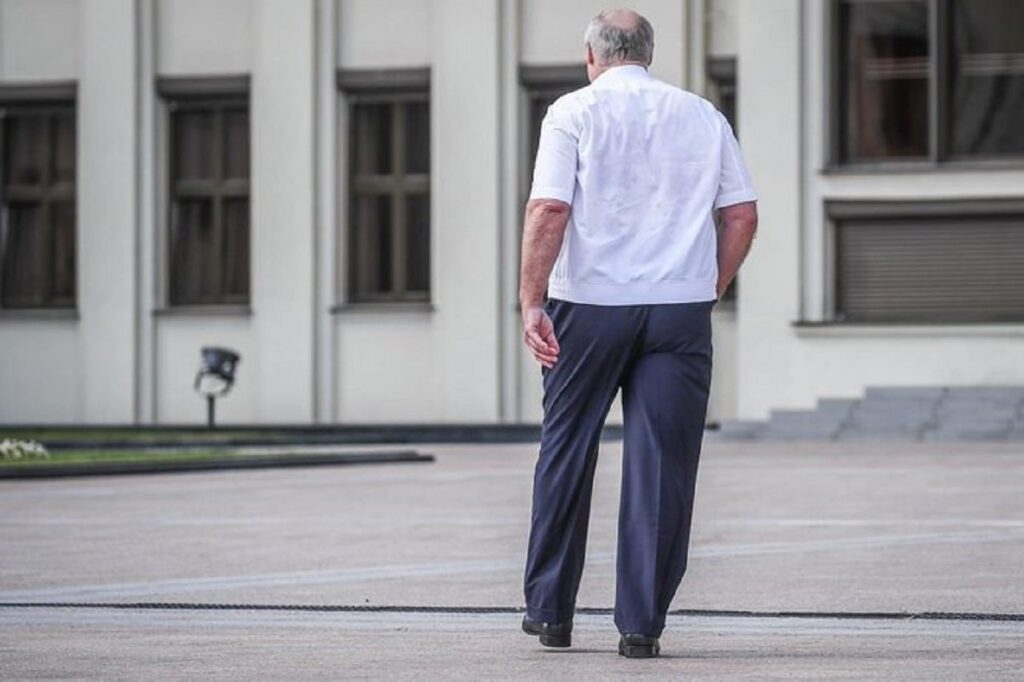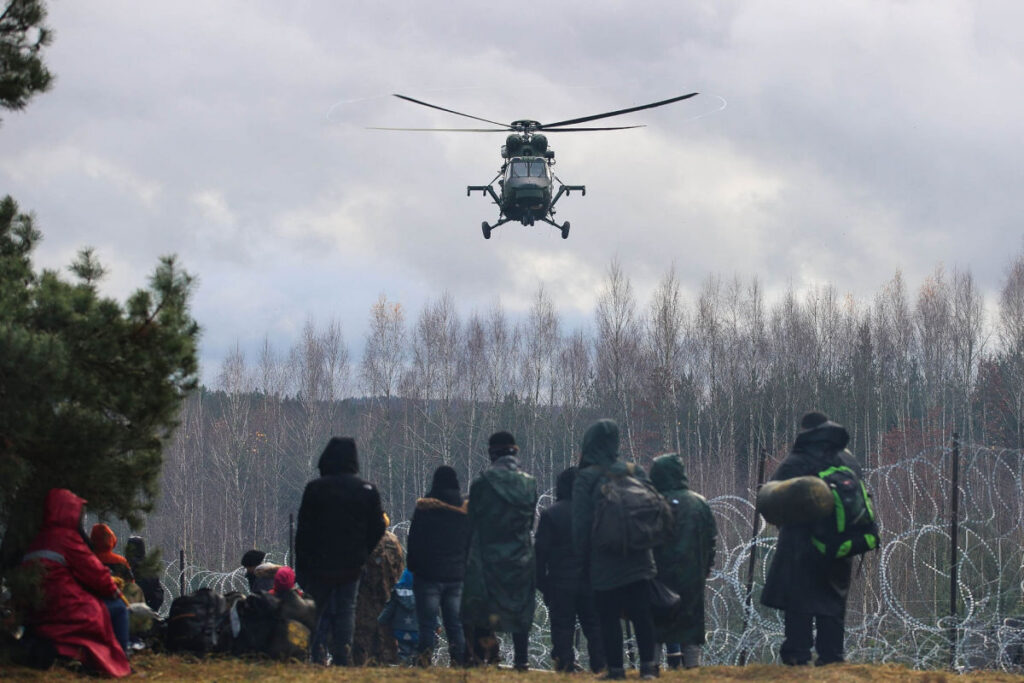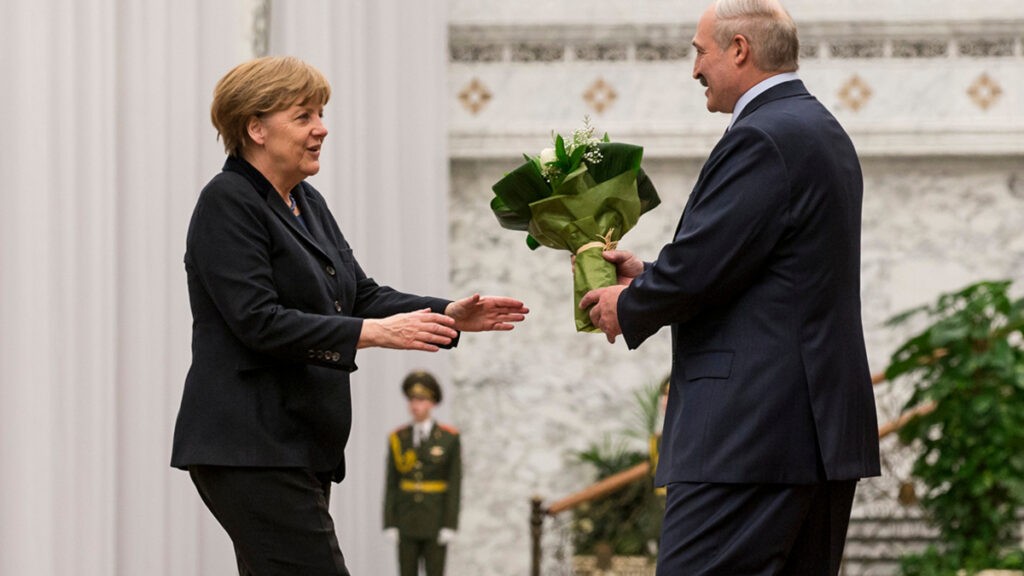Supply and Demand
Minsk’s signals are expressed primarily in the fact that political prisoners have begun to be released on the initiative of the authorities, and this process is expected to continue. As a result, by 2026, all prisoners, including Alexander Lukashenka’s main political opponents from the 2020 presidential campaign, may be released early. This was the case in previous political crises, and the authorities already have sufficient control over the situation in Belarus to repeat their past practice.
In any case, the release of political prisoners is a negotiating position. Another negotiating position is new arrests, which continue and thereby cast doubt on the regime’s ability to change for the better.
Lukashenka will not transform himself into a democrat, but he can certainly adjust the severity of his regime’s repressions at all levels. Repressions are entirely manageable by the authorities, as if with a remote control.
The point at which the authorities are most likely to turn them off or press ‘pause’ is after the 2025 presidential election.
Stopping repressions could be one of the West’s conditions for beginning to normalise relations with Belarus. This condition is clearly not yet met, although the West may have other motives for talking to the tiresome regime of Lukashenka.
The sanctions pressure, which is the West’s strategy of action on Belarus, has so far not achieved the goals set – neither those that the Belarusian democratic forces hoped for, nor those that concerned Western politicians.
The toughest sanctions, as is known, were imposed by the West for the forced landing of a Ryanair passenger plane, the migration crisis on the Belarus-EU border, and complicity in Russian aggression against Ukraine – that is, for what directly affected Western interests.

There is confidence, backed by Belarusian experience, that a different, more flexible policy can produce the desired effects or at least bring them significantly closer.
This text can be considered a proposal for such a flexible policy. Its essence is to look for opportunities for compromise with official Minsk, without abandoning the ultimate goals, merely postponing them, as happens in ordinary life, until more favourable times and circumstances arise.
Common Interests
By signalling its readiness for negotiations, official Minsk hopes to use discussions to realise its interests in various spheres, from politics to economics and to security.
The specificity of the moment is that a certain part of the regime’s interests coincides with the interests of Belarus and Belarusian society more broadly, and some of them are intertwined with the interests of Western countries.
The regime’s political interests are related to maintaining power and recognising Lukashenka as the president of Belarus. This is not an area where compromise is possible on the part of the regime, at least in terms of Lukashenka’s participation or rather non-participation in the 2025 presidential election. This issue could have had prospects if it had been set by the West as a condition in 2020 or immediately after, but even that is not certain.

However, the issue of power transition after 2025 can be discussed. This is what everything in Belarus is ready for, both morally and physically, including the laws, alternative positions for Lukashenko, and the ruling elites. Finding a compromise on this issue with the West and Russia’s consent could push Lukashenka to implement the transition.
The implementation of a compromise in the political sphere could take the form of a muted, not overtly critical, reaction from the West to the 2025 presidential election in the case of its peaceful conduct. The absence of violence by the authorities would need to be accompanied by the release of political prisoners and an end to repressions, and the West’s reply would be the return of ambassadors to Minsk.
The transition of power after 2025 and before 2030, if it is destined to happen, will open up opportunities for a full-fledged political dialogue between Belarus and the West, which could lead to the lifting of all sanctions.
The lifting of economic sanctions falls into the sphere of coinciding interests of the regime and Belarusians. This concerns the lifting of sectoral sanctions, the border blockade, the opening of border crossings, access to the port infrastructure of Poland and the Baltic countries, permission for Belavia flights to Europe, and aircraft maintenance.
All these steps can be implemented without lifting or cancelling sanctions right away, but initially by suspending certain actions. These measures on the part of Western states can be linked to specific measures by the authorities to release political prisoners and end repressions.
The resumption of air traffic, which is the most realistic compromise since there is a demand for it from Belarusian society, will contribute to expanding people-to-people contacts between Belarus and Europe, as well as overcoming the information and communications isolation. This will positively affect Belarusians’ perceptions of the European Union.
The suspension of the most sensitive economic sanctions against Belarus may favourably affect the interests of Western countries in the sphere of regional security.
The fact is that sanctions and isolation from the West have led to an increase in Belarus’s economic dependence on Russia and, consequently, to an increase in Russia’s ability to use Belarus for military purposes. This was manifested, in particular, in Russia’s use of Belarusian territory in 2022 for its aggression against Ukraine. In the pre-sanctions period, this was unlikely to have happened.
Ending the sanctions pressure will help to reduce Belarus’s economic dependence on Russia and, consequently, Russia’s influence on Belarus.

The resumption of cooperation in the migration sphere is also a common interest of the regime, Belarusians and Western countries. It is obvious that such cooperation, which implies the return of the parties to fulfilling their obligations, will lead to the resolution of the migration crisis on the Belarus-EU borders more quickly and more effectively than a fence.
Room for Two
Negotiations with official Minsk do not imply the participation of the Belarusian democratic forces in them, but nor do they exclude Western countries’ consultations with them.
Ideally, one Western country should take responsibility for coordinating and representing the West’s position. The most suitable candidate for this role could be a state that has weight and whose political leadership has experience of direct contacts with Lukashenka. Several countries meet these criteria, including the United States, Germany and France.

There can be multiple political and humanitarian channels for communications, but on the Belarusian side they should have a direct connection to Lukashenka.
From the point of view of effectively promoting any issues regarding Belarus, experience shows that direct contacts with Lukashenka are objectively preferable to any indirect forms of communication.
The calendar of international events between now and the end of the year provides several good opportunities for substantive consultations with high representatives of official Minsk, and in particular the head of the Belarusian Foreign Ministry. Among such events are the next session of the UN General Assembly in New York at the end of September and the OSCE Foreign Ministers’ Summit in Malta in December.
In addition, the second High-Level International Conference on Eurasian Security will be held in Minsk in October-November this year. The participation of guests from the United States, United Kingdom and EU countries in itself will already be a gesture towards the Belarusian authorities. Participants in the first conference, which took place last year, included, in particular, the Minister of Foreign Affairs of Hungary and the former OSCE Secretary General.
Belarus should not be written off. The country has not ceased to exist on the map and has not been absorbed into Russia. Lukashenka retains autonomy, although he depends on the Kremlin that dependence is not sufficient to consider him Putin’s puppet.
If nothing can be done with him, then we need to think about how he can be used in Western interests, for example in opposing Russian aggression. Reflections on this matter will lead to the conclusion about the need to strengthen Belarus’s independence, which can be done by suspending economic sanctions.
The Belarusian authorities were the first to take that difficult first step, initiating the release of political prisoners. The West’s response can greatly influence the nature and content of Minsk’s next steps.

 Pavel Matsukevich
Pavel Matsukevich